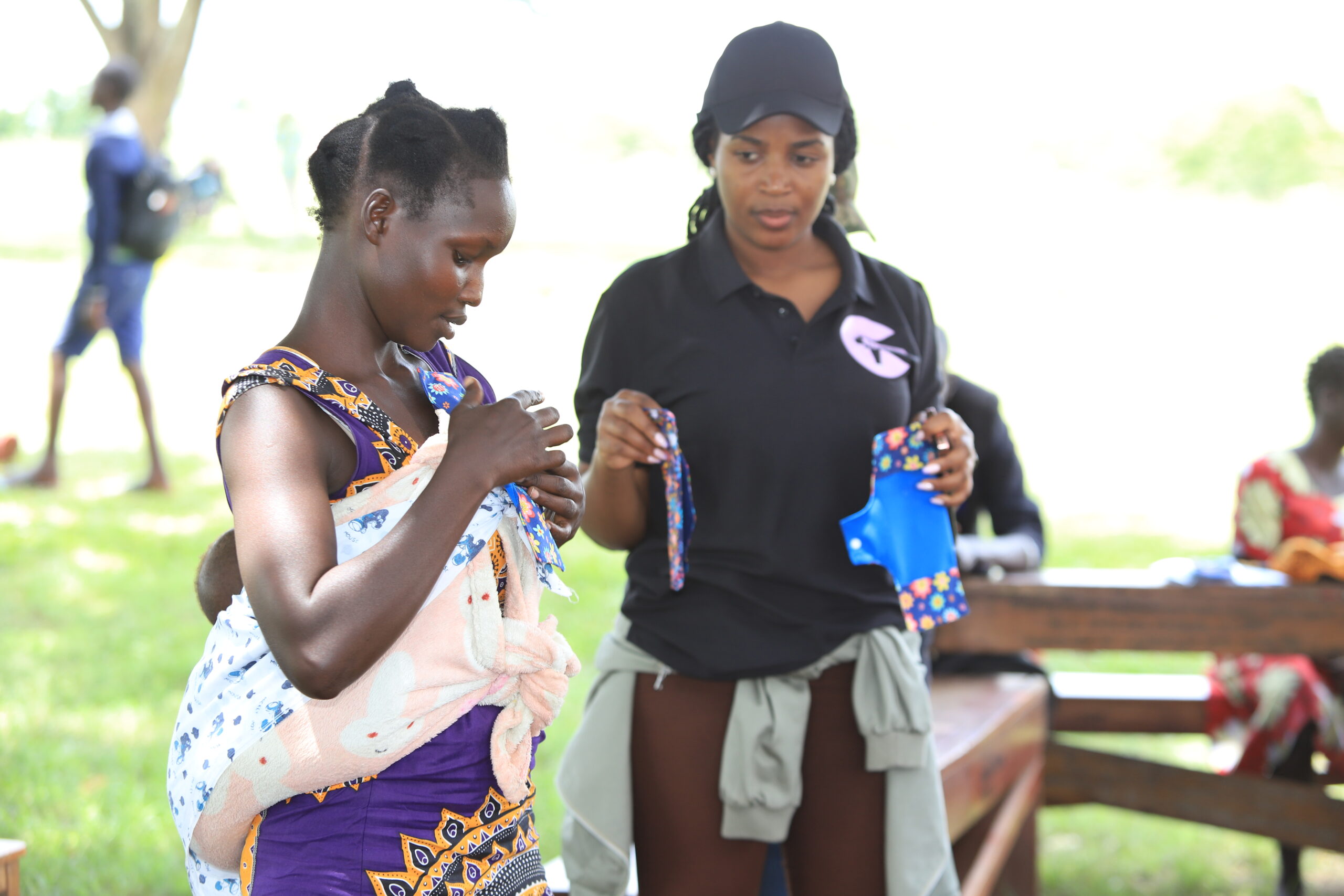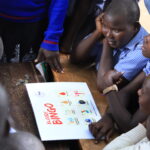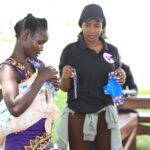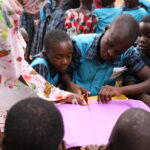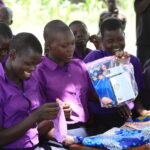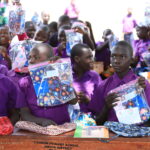The Dwona Initiative was birthed in 2022 by a podcast called “My Voice Podcast,” which was created in 2020 and is run by the Founder and team lead, Lizza Marie Kawooya. My Voice Podcast shares personal experiences, the voices of survivors of violence, and the opinions of youth and adolescents regarding their role in eradicating gender-based violence, gender inequality, and poverty.
The initiative stemmed from Lizza’s volunteering experience in Nwoya District, Northern Uganda, under a community-based organization called Delta Education Collective in 2019. During her time there, she witnessed the barriers young rural girls face in accessing education, which silenced their voices and prevented them from reaching their full potential. One significant barrier that caused girls to miss school was period poverty and stigma. Lizza was posted in schools where over 50 percent of the girls missed classes because they or their parents couldn’t afford menstrual products, and there were misconceptions about menstruation among the girls.
Lizza’s heart broke as she constantly witnessed this situation. At a particular school called Ongai Primary School, the deputy head teacher, Ms. Mary Aciro, took matters into her own hands. She provided the girls with cotton cloth, soap, water, and her home as a changing room during their periods. For girls whose parents instructed them to stay home during menstruation, Ms. Aciro would talk to the parents and convince them to let their daughters stay at her home (a small hut near the school) during their period days. However, the burden became overwhelming for her, as she was funding everything from her own pocket. Each month, she would have over 20 girls in her home, and they all needed resources.
Lizza shared this impactful story on the podcast, and it resonated with her listeners, supporters, friends, and family. They came together and raised period products for the girls in that community and school. Over 100 girls were supported with period products for a period of 3 years.
The impact of this support was breathtaking, as parents from the community allowed 20 girls to join cluster learning classes that took place in the community during lockdown. Witnessing this, Lizza and the team of volunteers thought of ways to reach other communities facing similar barriers. They decided to register the organization as a non-profit and named it “Dwona Initiative,” which means “My Voice Initiative.” Currently, Dwona runs with great support of 12 passionate volunteers.
Dwona envisions a world where girls and women are free from violence, inequality, and poverty, and their voices are amplified in all aspects of socio-economic development. The initiative implements various programs focusing on gender equality, education, entrepreneurship, and menstrual health.
Some of our notable achievements include the successful implementation of the “RUMPs for Rural Girls” program, providing access to menstrual products to over 341 girls and 38 child mothers, and education to 1060 rural boys and girls across three districts. We have also developed a play-based educational model to teach menstruation concepts and established menstrual hygiene clubs in six partner schools. Through these clubs, we offer training on self-sufficiency skills like making reusable menstrual pads and soap, breaking the silence and stigma surrounding menstruation while empowering both girls and boys with knowledge and skills.
Additionally, Dwona runs other programs such as “The Dwona Skills Hub,” which aims to equip youth, specifically young rural girls who have experienced early pregnancies, dropped out of school, or are survivors of violence, with practical entrepreneurial skills to keep them in school and open up opportunities for employment and further education. “The Power of My Voice” is the advocacy arm of the organization, which employs art as a transformative approach to engage school children, teachers, administrators, community leaders, and members in discussions about gender-based violence, its various forms, and their role in preventing and responding to these issues.
If you would like to join and support us; please reach us at info@dwonainitiative.org
Social media:
Twitter: @DwonaInitiative
Linkedin: @Dwona Initiative
Instagram: @DwonaInitiative
Facebook: @DwonaInitiative
